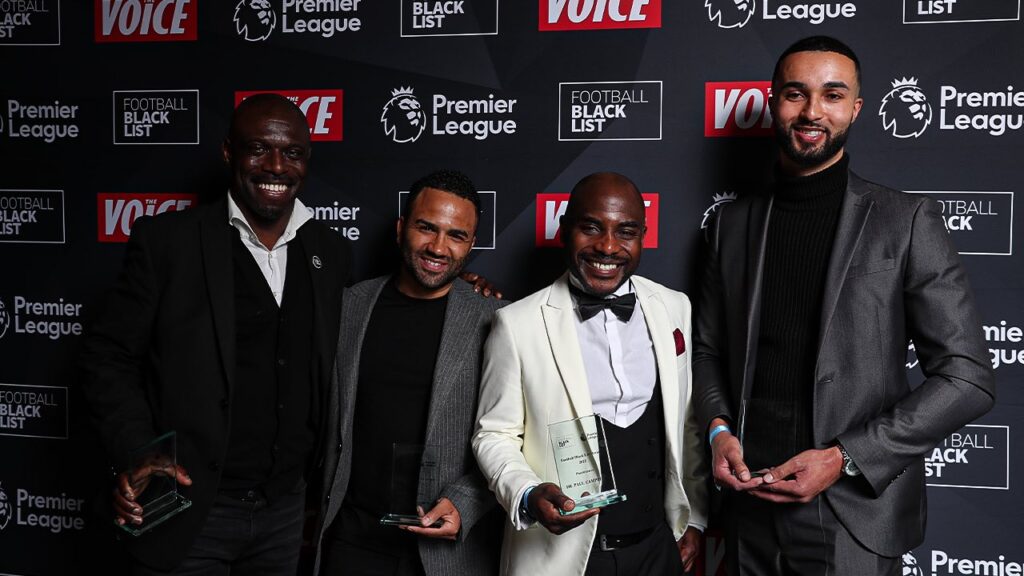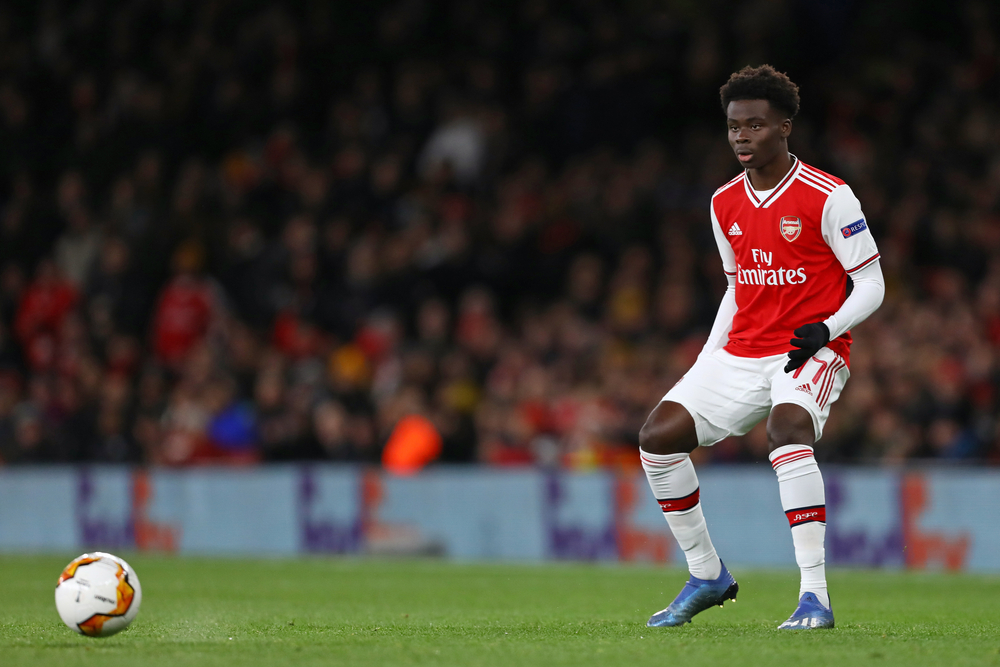Last night the Football Black List hosted the awards ceremony at Battersea Arts Centre for the first time since 2019 to celebrate Black talent in British football. From grassroots to household names, the List inspires and celebrates Black prominence in the industry. It also generates the necessary push for more representation.
Hearing from nominee Dr Paul Campbell an associate Professor in the Sociology of race and inclusion and the first academic to receive the award: What is the importance of the Football Black List?

In the aftermath of the awards ceremony, Race Equality Matters heard from Dr Campbell and his reflections on the night and the importance of the Football Black List.
As an Associate Professor in the Sociology of race and inclusion at the University of Leicester, and inaugural Director of the University’s Institute for Inclusivity in Higher Education, his academic work focuses on race and inclusion within higher education and sport. Alongside his academic commitment to football, he has also spoken on his continued engagement at grassroots level and his life-long love of the sport.
Speaking exclusively to Race Equality Matters, Dr Campbell reflected on the importance of the Football Black List:
“Initiatives and events like The Footballers Black List are vitally important for ensuring that the game recognises the contributions of people from all communities who love it, who are invested in it and who have dedicated their lives to it as, fans, volunteers, players, coaches and administrators. Historically, the contributions of people of colour to the game we love in England have been overlooked. The Black List is essential for ensuring that this does not continue in future.”
Dr Campbell also informed Race Equality Matters of what change he hopes to see in the industry moving forward:
“The hope is that all areas of the football industry in England become fully representative and equal so that events like the Football Black List are no longer needed. But until then, events and initiatives like the Football Black List continue to grow in recognition and importance. I hope that we also start to see steps to meaningfully and measurably include talent from other communities of colour, especially from British South Asian and East Asian communities in all areas of the football industry, but especially as players.”
What is the importance of the Football Black List beyond the industry and its fans?
The Football Black List was founded in 2008 by Leon Mann MBE and Rodney Hinns, to which it has hosted both regional and national awards sponsored by the Premier League at venues including Wembley Stadium and the Houses of Parliament. This year the List consisted of 9 categories (including ‘LGBT+’, ‘Ones to Watch’ and ‘Practitioners’), with nominees including Marcus Rashford, Bukayo Saka, Dr Paul Campbell and Lianne Sanderson.
Though last night’s awards marked a celebration for the outstanding Black talent in the industry, it is also a means to increase off-pitch visibility for the upcoming generation. The Black Footballers partnership concluded that 43% of professional players in the Premier League are Black, as are 34% in the EFL, however representation remains significantly lower for Black figures in women’s football and in off-pitch positions. Representation in the power-holding managerial positions behind the game remain disproportionately low.
Bukayo Saka won the ‘Players- Off the Pitch’ contribution award and told the audience:
“There’s so many other great voices out there doing amazing things. So let’s all continue to encourage them and try to make a difference where we can.”
Why is visibility important in all sectors, public-facing or not?
For many people, we often feel we cannot be what we cannot see. The importance of a role model that we can identify with– based on gender, appearance, race, religion, sexuality and much more- can be harder to see for some people. Whether in the workplace, school or day-to-day, young ethnically diverse talent remain underrepresented in the most visible positions.
The Football Black List reflected on the importance of visibility in the sport, stating:
“We believe by highlighting role models – working across a wide range of positions in football – young people will be more encouraged to think about how they can get involved in the sport beyond the field of play.”.
The importance of visibility, role models and seeing someone you can identify with was echoed in the 2023 Oscars Academy Awards earlier this month. Michelle Yeon, a Malaysian actress, spoke in her acceptance speech for the Best Actress award for her performance in Everything Everywhere All At Once, stating:
“For all the little boys and girls who look like me, watching tonight, this is the beacon of hope and possibilities. This is proof that dreams do come true. And ladies, don’t let anybody tell you you are ever past your prime. Never give up.”
What does representation of ethnically diverse talent look like beyond the football industry?
Representation of ethnically diverse talent across all sectors and workplaces remains unequal. Representation of ethnically diverse talent at the very top of organisations remains even more unequal. Whilst Black role models in the football industry are visible for the next generation, this is less the case in many other sectors.
In McKinsey’s most recent 2021 report, they found that Black workers have higher unemployment and lower wages than other colleagues, and another McKinsey report has referred to the “broken rung” that these employees face where they lack the first step up needed to enter management roles. Even where over a fifth of C-Suite roles in the US are occupied by women, just 4% of these women are ethnically diverse. In the UK context, a review conducted on the Bank of England in 2021 found a “leaky pipeline” in the organisation’s recruitment process in which 44% of applicants were ethnically diverse, yet only 29% of those hired were from an ethnically diverse background.
In the McGregor-Smith Review from 2017, employment rates for ethnically diverse people were considerably lower too. It identified that whilst white workers saw an employment rate of 75.6%, this was only 62.8% for ethnically diverse workers, being especially lower for employees of Pakistani or Bangladeshi background.
Dr Paul Campbell recognised the importance of visibility and role models in the football industry and beyond, stating:
“Role models are essential for change and inclusion. It is much easier for people to aspire if they see and follow people who are like them. By the same token, a lack of role models of colour in any part of the game, can often signal to the next generation of young people that these spaces are not for them. I hope my inclusion as one of the first academics to make the Black List, makes others realise that you don’t have to be out on the football pitch to make a significant contribution to football…. You don’t have to be supremely sportingly talented to offer something to the game that we all love.”
More representation is needed, especially at the top of our organisations. More visibility, more celebration and actionable change can enable this.
Because we can’t be what we can’t see…
How can the Football Black List inspire your organisation to celebrate and improve ethnically diverse representation?
We’d love to hear your thoughts. Join our community on socials and sign-up to our upcoming events here.
Photo by Shutterstock

